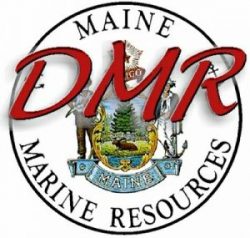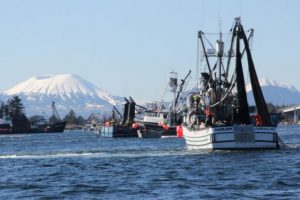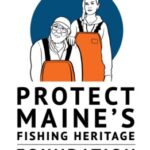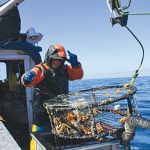Tag Archives: Coronavirus
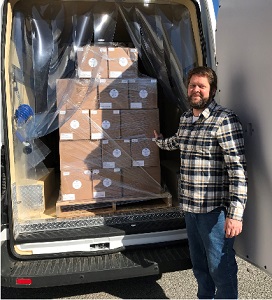
Coronavirus Adaption: So That’s What They Mean By Doormat: Fresh Fish At Your Doorstep
With the supply chain into Manhattan constricted, if not completely cut off due to the coronavirus crisis, the fishermen who ply their trade on the East End are facing a dwindling demand for their product. “If there is no call for fish, a fisherman may not go fishing,” said Pete Haskell of Haskell Seafood in Quogue. “If we can create enough of a market to keep him out there, it’s a win.” “We have a commercial fishing fleet that needs more outlets to get its seafood to people,” Deliveries have grown almost daily. >click to read< 15:15
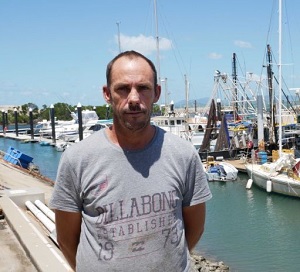
Coronavirus devastates Bowen’s fishing industry, farmers face uncertain winter
The live coral trout trade, which underpins the fishing sector in the north Queensland town of Bowen, has been shut down since January with dozens of crews out of work and boats for sale. Ben Collison, a 22-year veteran of the Bowen line-fishing industry, said it was the worst he had ever seen the market. “Ninety per cent of the boats — as soon as China stopped, they stopped,” he said. “They all relied on the Chinese market.”,, Adding to the pain for Bowen’s fishermen, prices crashed from $60 per kilogram early in the year to just $17 last week, less than half the break-even price. Retailers suffer,Uncertainty for farmers, >click to read< 11:52
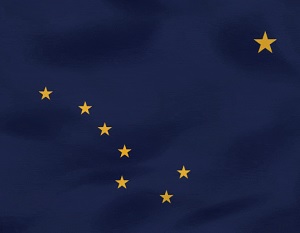
Oil, Fishing, Tourism: Alaska Economy Faces Triple Hit from Coronavirus
The U.S. state of Alaska is so far distant from the worst medical ravages of the coronavirus pandemic, but its economy is in critical condition. Alaska is especially vulnerable because it depends on oil, tourism and fisheries – basic industries that are reeling from the global coronavirus pandemic – and the state government gets most of its revenue from investment earnings that have now evaporated. “Alaska is experiencing a perfect storm, a most terrible trifecta, the hat trick from hell,” said state Senator Natasha von Imhof, co-chair of the Senate Finance Committee, at a hearing Saturday. “We are being hit on all sides with the stock market crash, oil prices plummeting and the tourism and fishing season all but idle.” >click to read< 09:04
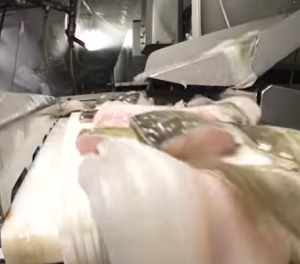
Coronavirus: Seafood processors respond to COVID-19 with added precautions
Seafood industry processors say they are in ongoing discussions with local, state and federal partners,,, The seafood industry talking points including working around the clock on prevention and response, coordinating with partners that include public health officials, preventing the spread of COVID-19 within Alaska and keeping seafood safe, said Stephanie Madsen, executive director of the At-Sea Processors Association. The Seattle-based trade association represents six member companies who own and operate 16 U.S. flagged catcher/processor vessels participating principally in the Alaska Pollock fishery and West Coast Pacific whiting fishery. The group includes American Seafoods Co., Arctic Storm Management Group LLC, Coastal Villages Region Fund, Glacier Fish Company LLC, Aleutian Spray Fisheries Inc. and Trident Seafoods. >click to read< 20:56

Coronavirus: Gov. Mills asks President Trump for direct financial assistance in support of Maine’s fishing and seafood industries
Governor Janet Mills pressed President Donald Trump to marshal the resources of the federal government to support Maine’s vital fishing and seafood industries. “I am writing today to ask for your immediate assistance in support of Maine’s iconic seafood industry. The COVID-19 pandemic is taking a substantial toll on Maine’s independent fishermen, aquaculturists, wholesale dealers, and seafood processors,” wrote Governor Mills. “The markets for their products are collapsing both globally and locally. The men and women who ply our waters harvesting lobster, groundfish, herring, shellfish, countless other species, and farming aquacultured products are the very backbone of our rural coastal economy.” >click to read< 15:19
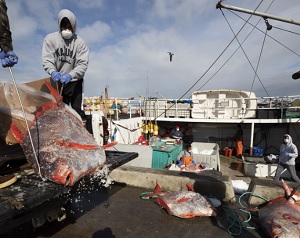
Coronavirus: Fishermen return from sea with a big catch and no place to sell
The coronavirus literally traveled over them from Asia to California while they were on the high seas catching tuna. They were as safe as anyone doing one of the most dangerous jobs, and now? Fishermen are returning home to California to find a state all but shuttered and nowhere to sell their catch. A handful of tuna boats filled with tens of thousands of pounds of fish are now floating off San Diego’s coast as they scramble to find customers. Many wholesalers stopped buying as restaurants were ordered closed except for takeout. photo’s, >click to read< 11:42
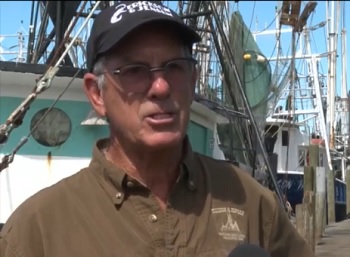
Coronavirus: Fishing markets impacted by new restaurant guidelines and shifting markets
One of the owners of ‘Erickson and Jensen’ says these changes have not impacted the prices of their shrimp, but it has impacted their actual sales. ‘Erickson and Jensen’ has been a family-run shrimp business since the 1950s. “Well we’ve been doing this for a long time, my family is multi-generational, we’ve always been fisherman,” said Grant Erickson.,, While they’ve seen their sales to restaurants go down, they have seen their sales to markets like Publix go up. “We can see the change happening in that there is a heavier demand in retail than in the restaurant area,” said Erickson. >click to read< 10:03
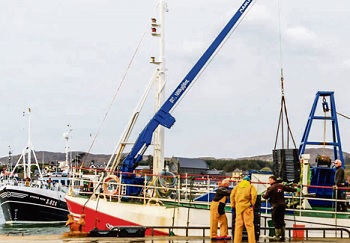
Coronavirus: Fish processor closes as markets collapse
One of the country’s largest fish processing companies is shutting down because the EU’s fish markets have collapsed due to the Covid-19 pandemic. Processors are now calling on the Government to set up a task force to save the industry. All 64 of the boats managed by the Castletownbere Fishermen’s Co-Operative have been asked to come back into port. “The world has collapsed a little bit and we can’t do anything in the European market. There are loads of fish but there is not sufficient enough market. >click to read< 07:37

Small Business Relief Tracker: Funding, Grants And Resources For Business Owners Grappling With Coronavirus
Some 30 million American small businesses are high on the coronavirus’ list of victims. Nearly half of these companies say the pandemic is to blame for unprecedented revenue declines, and with no clear end in sight, the possibility of temporary closures has become a reality for many. In an effort to help business owners find financial relief, we’ve rounded up all of the government agencies, private companies and nonprofit organizations that are extending support. We’ll be adding to this list as the situation develops, so check back for updates. >click to read< 13:01
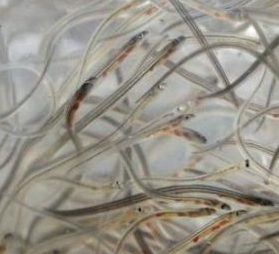
Coronavirus affecting Maine fisheries
As of early Wednesday morning, the Maine Center for Disease Control and Prevention had yet to report a single confirmed or presumed case of COVID-19, the respiratory infection caused by the coronavirus, in eastern Maine, but the lobster industry is already feeling the impacts of the global pandemic. “The market is really poor,” Stonington lobsterman Hilton Turner said Tuesday afternoon.,, The uncertainties arising from the coronavirus will likely affect other fisheries. The state’s elver fishing season opens on Sunday, and virtually the entire harvest is shipped to buyers in China. >click to read< 10:19
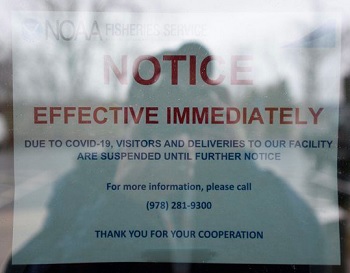
Coronavirus: NOAA closes Gloucester office to public, takes meetings to web
NOAA Fisheries is restricting access to its Gloucester office and the New England Fishery Management Council is converting many of its meetings to webinars as precautions against further spread of the novel coronavirus. NOAA Fisheries said its Greater Atlantic Regional Fisheries Office in the Blackburn Industrial Park continues to operate, but it is limiting access to the building to employees, as well as to visitors and deliveries deemed essential to its mission. “This measure is taken out of an abundance of caution and our commitment to protecting the health and safety of our employees and constituents during the COVID-19 virus pandemic,” NOAA Fisheries said in a statement. Suspend the observer program, right now! >click to read< 07:01

Coronavirus: EU fishing industry calls for urgent measures to secure fish supply
The EU fishing sector has presented to European authorities the critical measures that have to be taken in order to overcome the operational, commercial, and safety problems that the sector has only begun to endure and which will inevitably and without doubt worsen in the coming weeks due to the protective measures taken against the spread of the COVID-19. The primary concern of the sector is the continuity of fishing activities and food supply .,, Europêche also urges policy-makers to modify the fisheries fund regulation in order to quickly adjust and provide financial aid for those fishing companies that are forced to cease their operations for imperative reasons such as member states measures to avoid the spread of the COVID-19, designation of high risk areas, crew infections or lack of market demand. >click to read< Letter with recommendations to the EU Commission >click to read< 17:01
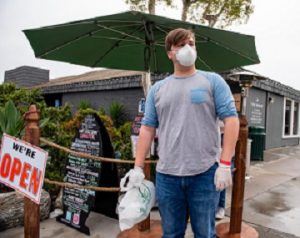
Dana Point Harbor fish market adapts to coronavirus restrictions with curbside service
It was the last day of the lobster fishing season Wednesday, March 18 and a Dana Point Harbor fish market was making the best of the new coronavirus restrictions. To accommodate customers, Jon’s Fish Market was selling the live ocean bugs curbside. They were also offering red snapper, halibut, mahi-mahi, bluefin tuna, yellow-tail and salmon.,, “Our production line is small and we process them in house,” Mansur-O’Keefe said, adding that she buys whole fish. “So we don’t have to shut down.” Mansur-O’Keefe said there are still hundreds of fishermen out on boats and her market will not only continue to feed customers in search of fresh food but also help fishermen with their livelihoods. Sometimes, how customers get their fish can be unique. Bartering,,, photo’s, >click to read< 11:36
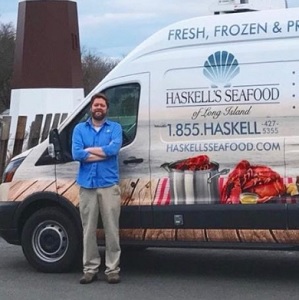
Haskell’s Seafood Keeping Baymen In Business-Market will deliver directly to homes in wake of coronavirus pandemic
As Jamie Hummel’s markets began shutting down, the Hampton Bays fisherman was genuinely worried what would happen when all avenues to sell his product officially closed. “Everyone is laid off right now,” he said. “With what we do, there’s no backup for us.” Southampton Town Trustee Scott Horowitz saw a Facebook post by his childhood friend and knew he needed to jump into action. He connected Hummel with Captain Peter Haskell, owner of Haskell’s Seafood in East Quogue, who consulted with other baymen, and Assemblyman Fred Thiele, to create a delivery service. >click to read< 09:56
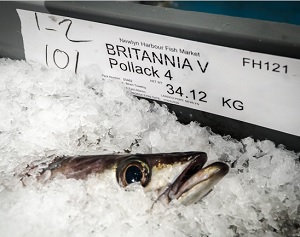
Coronavirus: export fish price crash – Newlyn boat lands huge trip in debt!
By weight, pollack, which is mainly exported to France and Spain was the most plentiful fish on the market this morning in Newlyn where over 8,000kg was landed from four boats – on Monday this week, pollack was making £4.50 a kilo – by this morning the average price was 41p – one boat, which had leased all of its pollack quota at 50p a kilo made a net loss on the trip – which means that not only would the crew – all of whom are ‘share-fishermen’ receive no wage but the boat’s expenses, which included around 6,000litres of fuel,,, >click to read< 07:25
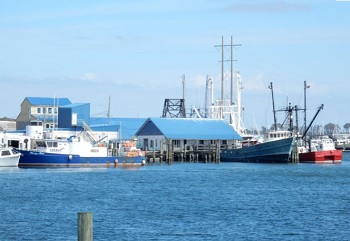
Coronavirus: North Carolina fishermen, seafood dealers work through industry changes due to outbreak
N.C. Gov. Roy Cooper issued an executive order Tuesday closing restaurants and bars to dine-in service. Additionally, the U.S. Centers for Disease Control and Prevention has issued guidance recommending people avoid large gatherings and to practice social distancing to prevent the spread of COVID-19. As a result, commercial fishermen, including for-hire and charter fishermen, have been “significantly impacted,” according to N.C. Fisheries Association President Glenn Skinner. “While it’s too early to predict the long-term impacts, it appears they will be devastating if the current situation continues for any length of time.” >click to read< 06:21
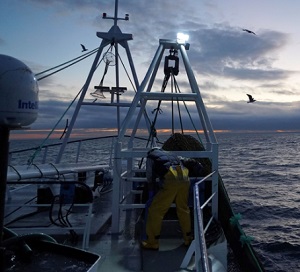
Coronavirus: Irish Fishermen advised to stop fishing due to market collapse
Fishermen in the south and west of Ireland have been advised to cease fishing this weekend following what has been described as a ‘complete collapse of the market’ here and in Europe. The Irish South and West Fish Producers Organisation said it would be irresponsible to keep landing fish if it is only going to be discarded. The Chief Executive Patrick Murphy said a specific financial package needs to be put in place for the fishing industry otherwise there will be utter devastation. >click to read< 20:10
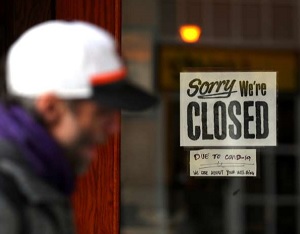
Coronavirus: Flattening the economy to control COVID-19 will have limited benefits at high costs
In 2016, U.S. economist Larry Summers, commenting on the release of a report titled The Neglected Dimension of Global Security: A Framework to Counter Infectious Disease Crises, said that “relative to its significance, there is no issue that gets less attention” than the risk of pandemics and epidemics.,, scrambling to catch up, the political authorities at the UN’s World Health Organization (WHO) and in towers of power around the world who underplayed the pandemic risk are engaging in a giant social and economic experiment: the temporary shutdown of the $100-trillion world economy to fix a real looming crisis they long ignored. And it is an experiment. Governments around the world are using the global economy as a test tube for science and behaviour theories that the COVID-19 pandemic can perhaps be managed and controlled by imposing draconian limits on most economic activity. >click to read< 13:31
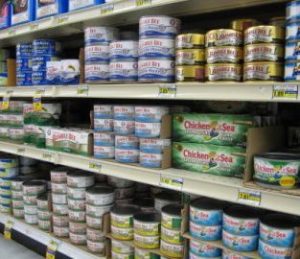
Coronavirus: As Canned Tuna Fly Off Shelves, Operations of US Boats Are Compromised
Consumers bracing against Covid-19 have raised demands not only for health and safety products but also for many food staples, including tuna. StarKist Samoa, located in the US Territory of American Samoa, supplies tuna for the US market. “The StarKist Samoa operation relies on the US tuna fishermen, and direct fish deliveries to the cannery are a major component of our business model,” said StarKist Samoa in a statement today. “We have seen an increase in sales that has been attributed to the Covid-19 impact, and we are doing our best to keep up with the demand. >click to read< 10:35
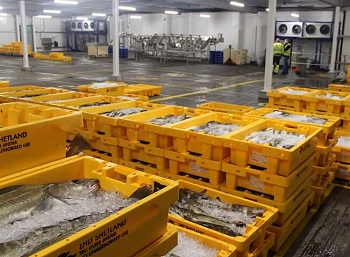
Coronavirus: Urgent measures sought to help shellfish sector market undermined by continental closures
Discussions are ongoing with the Scottish Government for temporary help for the sector which is hardest hit among the local strands of the fishing industry. Shetland’s continental exports are mostly crab and scallop, but prawns (nephrops), which form a huge part of Scottish seafood exports, are also badly affected. Shetland Fishermen’s Association executive officer Simon Collins said that it was essential to support a sector that in normal times was very healthy in order to tide it over till the effects of coronavirus had broken. >click to read<08:40

Coronavirus: COVID-19 hits lobster industry hard
On the day when Massachusetts restaurants officially were barred from offering on-site dining for at least three weeks, boat prices for live lobster were reported to dip to as low as $3 a pound in Maine and $3.25 in Massachusetts and wholesale dealers were trying to determine their next steps. “Right now, we’re trying to figure out what we’re going to do,” said Joe Ciaramitaro, one of the owners of Capt. Joe & Sons in East Gloucester.,, “It’s tricky right now,” said Monte Rome, owner of Gloucester-based Intershell. “The restaurant business for us is obviously over for now. It’s one minute at a time, not even one day at a time.” >click to read< 05:58
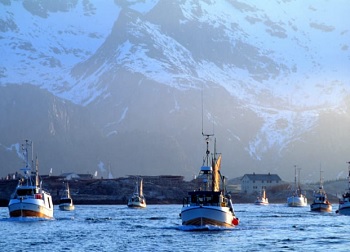
Norwegian industry vows to keep seafood nation running amid Coronavirus chaos
Both wild fisheries and aquaculture are as food producers considered of critical importance to society. Together with the transport sector the seafood producers are aiming to keep up supply of Norwegian seafood both in Norway and abroad. On Saturday 14th March, the Norwegian Ministry of Trade, Industry and Fisheries issued a formal letter identifying the value chain supporting food production and delivery as critical functions to society. In these difficult times it is important to keep society going, and ensure that everyone has access to healthy and nutritious foods, says Odd Emil Ingebrigtsen, newly appointed Minister of Fisheries and Seafood in Norway. >click to read< 19:10
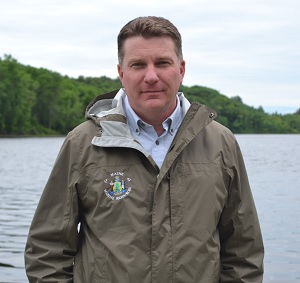
Coronavirus: Maine DMR Director Kelliher urges lobster industry to stop harvesting if there is no market
Patrick Kelliher, director of the state’s Department of Marine Resources, issued a call Monday for co-operation between fishermen and dealers in light of the COVID-19 pandemic. “Harvesters and dealers must put aside their differences and must actively communicate with each other about the realities of the market,” Kelliher said in a notice posted on the department’s website. “Harvesters must refrain from landing products if there is no market for it. Dealers must refrain from buying product for which there is no market in order to minimize loss associated with inventory that can’t be sold.” Kelliher said he does not have the authority to close the lobster fishery, but he is working with Maine Gov. Janet Mills to “fully understand what authorities may — or may not exist.” >click to read< 13:46
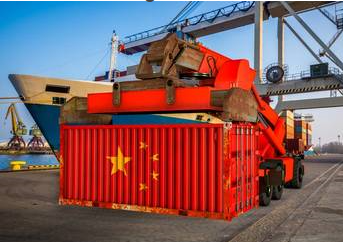
Economic Resumption? Business Picks up Pace in China, Global Recovery Pace Uncertain
China’s business and travel activities are steadily recovering after being disrupted by the coronavirus outbreak, but rapidly rising infections globally will pose a challenge to the country’s broader economic resumption. Nomura estimated in a research report on Monday about 61.6% of the firms hardest hit by the health crisis in China have resumed work as of March 8, and 74.1% in the broader economy. China reported on Monday no locally-transmitted cases of infection on the mainland outside of the central province of Hubei, the epicentre of the outbreak, for the second straight day. >click to read< 19:28
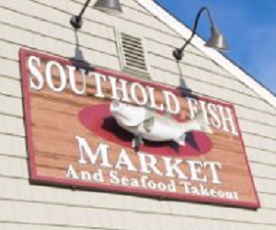
Coronavirus: Long Island Wholesale fish prices drop as restaurants cut back
The wholesale price for lobsters, normally anywhere from $12 to $15 a pound this time of year, have fallen under $8, dealers say. Other normally pricey fish such as tuna and swordfish are also taking a dive, as restaurants in New York City cut back,, If there’s any silver lining right now, said Nino Locascio, co-owner of Mastic Seafood in Mastic, it’s the walk-in retail market in Suffolk, where business has remained brisk. He also sells wholesale to local restaurants, and that business is down “dramatically,” he said. >click to read< 16:29
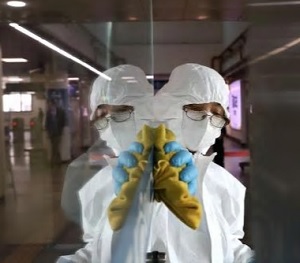
Coronavirus: The day our world changed
Coronavirus has changed everything. We just haven’t noticed it yet. But those changes will become more apparent by the day. Where COVID19 is taking us is uncertain. It appears contained in China. South Korea seems to be on top of its rate of spread. But Italy, the US and Europe may soon be overwhelmed by the contagion. But Flinders University change ecologist Professor Corey Bradshaw says that, ultimately, its impact will not be counted in human fatalities. Nor in the cost of treating the sick. It will be in our minds. It’s in our economic system. >click to read< 07:45
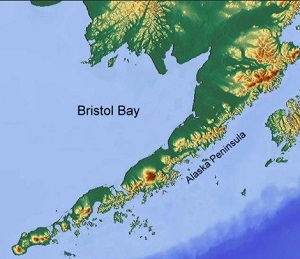
In America’s largest salmon fishery, preparations begin for coronavirus prevention ahead of the season
Around Bristol Bay, community leaders, health facilities and local entities are working to coordinate their preparations for the coronavirus. Thousands of fishermen, processors, and cannery workers will travel to Bristol Bay in the coming months to participate in the commercial fishery. As of Thursday afternoon, no one in the region had been tested for COVID-19, the disease caused by the coronavirus. Alaska’s first known case of the disease was announced Thursday afternoon. >click to read< 11:26

Coronavirus: Proposed lobster fishery closure thumbs down. Not all lobster dealers agree.
A proposal by the Nova Scotia Seafood Alliance to temporarily close the lobster fishery in Lobster Fishing Areas (LFA) 33 and 34 is not getting industry support. An Industry conference call involving about a dozen industry representatives resulted a consensus by the majority that there be no variation order to close the lobster fishery in LFAs 33 and 34.,, Not all lobster dealers agree closing the fishery is the best way to deal with the situation. “The answer is not shutting down the industry,” said Erica Smith, president of Fishermen’s Premium Atlantic Lobster Inc. on Cape Sable Island. more, >click to read< 08:07






